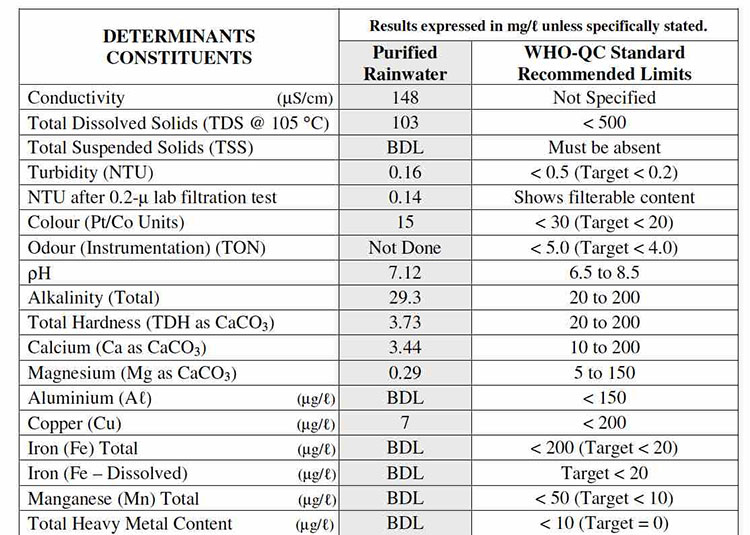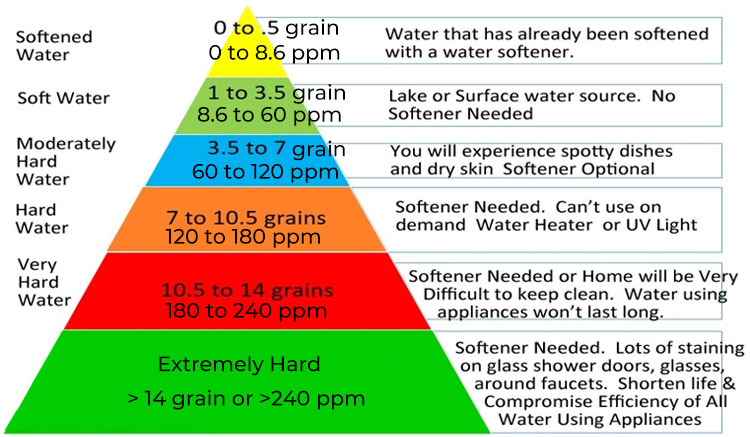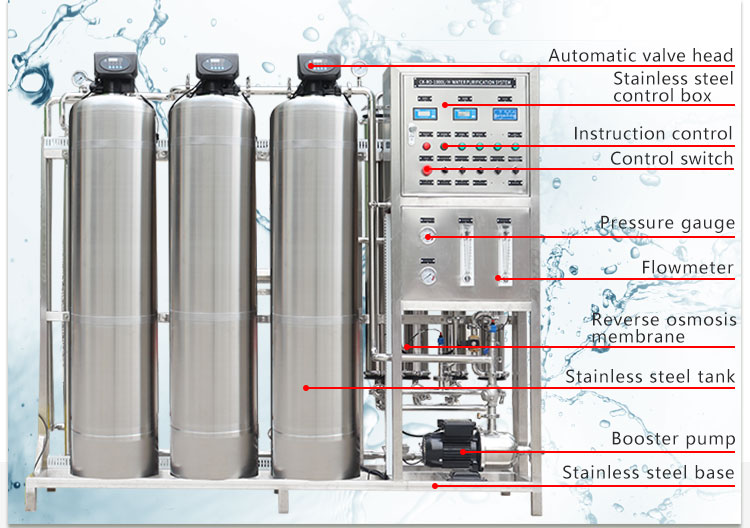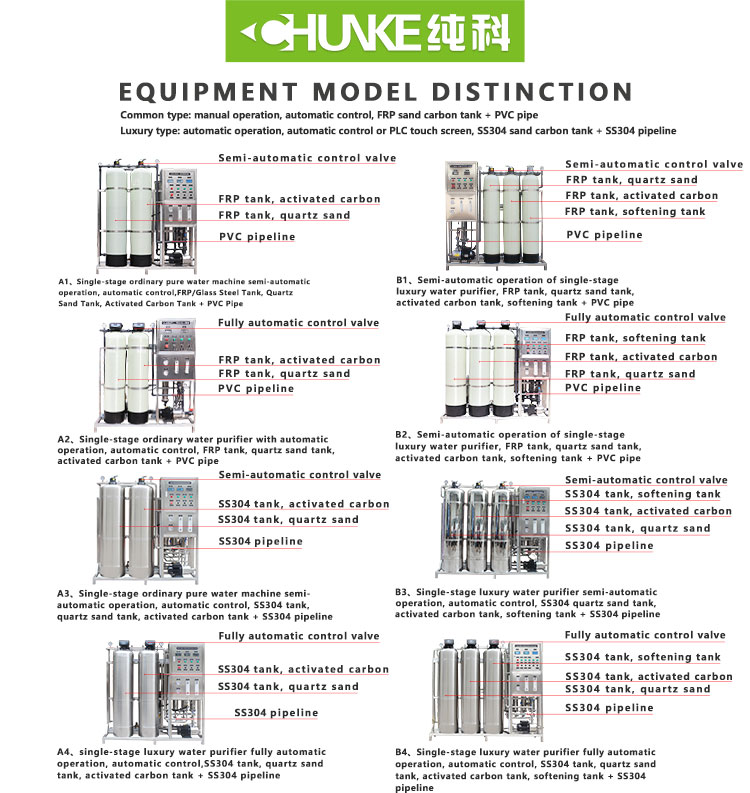- Commercial Reverse Osmosis Water Treatment Systems
- Industrial Reverse Osmosis Water Treatment Systems
- Ultrafiltration UF Water Treatment Systems
- Ion Exchange Water Treatment System
- Containerized Water Treatment Systems
- Customized Water Treatment System
- Bottle Water Filling Line
- Water Mechanical Micron Filters
- Stainless Steel Water Treatment Equipments
- Water Treatment Parts
- Water Sterilization
1000LPH REVERSE OSMOSIS WATER TREATMENT PLANT
1000 Liter per Hour Reverse Osmosis Water Treatment System
Reverse Osmosis Water Treatment technology is the best solution to purify your water. Before buying RO Water Plant,you have to be sure your raw water quality. Reverse Osmosis System is pressure driven process, and how many bar pressures does your system need, depends on your raw water quality. We explain this one, every water has some minerals, inorganic and organic matters, anion, cation, biological organism inside. Below there is a typical water analysis report. If you have this kind report, also you can understand with little knowledge, what kind of system you need?

From this report, first you have to check what is your water TDS (Total Dissolved Solid), to understand TDS more, please watch our video : What is TDS and Conductivity? As regards to TDS, we categorized water.
TDS in ppm | Water Quality |
0-1000 | Fresh Water |
1000-10.000 | Brackish Water |
10.000-100.000 | Salty Water* |
>100.000 | Brine |
*Seawater is about 20.000-45.000ppm
Second we check hardness of water and we decide system need water softener system or not ? Below there is table some countries use a unit grain (gpg: grain per gallon), some countries use ppm (part per million or mg/l milligram per liter)
One grain per gallon (gpg) is equivalent to 17.14 parts per million (ppm).
1 ppm = 1 mg/l

And also we check, how is our water color from Turbidity level, from below table you can see the how we can categorized your water color with turbidity. Turbidity give us idea for pretreatment and chemical dosing.

Other water analysis report data is very technical, to get more info about how to rid of iron, ammonium, algea…etc.It is better to contact with us to get best solution for your water source.
Now we explain parts of 1000 lph Reverse Osmosis Water Treatment Plant:

As regards to raw water analysis report, we can not use all material because of some matters in water are corrosive. If TDS is less than 1000ppm, we can use FRP, Stainless Steel 304,316 without any problem but For higher TDS we suggest to use FRP or carbon steel material especially for sand and activated carbon filter tanks.
First Tank is Sand Filter, we are putting quartz sand or other media sand, depends on your water analysis report. Sand filtration is used for the removal of suspended matter, as well as floating and sinkable particles.
The second tank is activated carbon filter tank. Carbon filters remove contaminants through adsorption. Absorption soaks up particles like a sponge to water. Adsorption adheres particles to a surface like a piece of Velcro. Organic compounds bond or stick to the surface of a carbon filter because water and contaminants are both polar compounds that attract one another. Activated Carbon is tasked with removing chlorine, odor, and color from water as well as controlling the taste. Activated carbon simply eliminates impurities, viruses, soluble gases, and particles that are larger than 0.5 microns. Activated carbon filter media comes in several types: coal based, wood based and coconut based each consisting of various particle sizes, base materials and activity.
The third tank is water softener tank. There is ion exchange resin inside. Water softener systems work in removing magnesium and calcium found in the water by replacing them with sodium ions. As the hard water is introduced in the mineral tank, it meets a bed of resin beads that grab hold of the mineral ions, which effectively releases the sodium ions. There is a small regeneration tank and we put inide Sadium salt, when your resin ion exchange capacity become less manual or automatically regenerate your ion exchange resin with sodium salt. To understand this process, we suggest you to watch our How to operate Reverse Osmosis Water Treatment System? Video.
Now we see different material, different configuration of 1000lph RO Water Plant photos:





